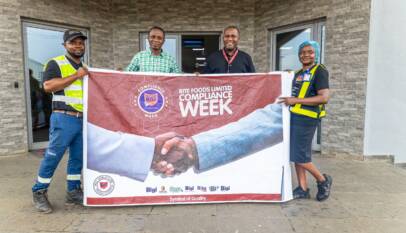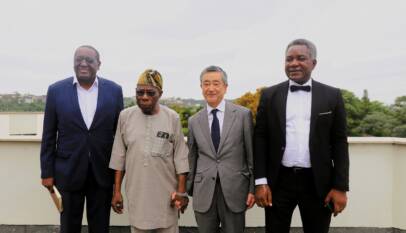Less than 3% of climate finance helps people on the frontlines of climate change, warns ActionAid
![]()
Stanley Ihedigbo
Less than 3% (2.8%) of global climate finance supports “just transition” approaches that prioritise workers, women, and communities.
ActionAid warns that communities on the frontline of the climate crisis are being abandoned, and harmful practices are going unchecked.
Ahead of COP30 in Brazil, ActionAid joins allies in calling for coordinated global action and the creation of a “Belém Action Mechanism” for just transition.
A new ActionAid International report released ahead of COP30 revealed that only 2.8% of global climate finance supports “just transition” efforts , the strategies that ensure climate action protects workers, women, and communities as the world moves away from fossil fuels and industrial agriculture.
The report, titled Climate Finance for Just Transition: How the Finance Flows, analysed investments by the world’s two largest climate funds , the Green Climate Fund (GCF) and the Climate Investment Funds (CIF).
It found that only one in 50 projects (1.96%) adequately supports or listens to affected people, and just one dollar in every $35 spent on climate finance supports a just transition.
ActionAid warned that the shortfall was deepening inequality and putting communities at risk, as governments and corporations push forward with climate measures that fail to protect people’s livelihoods and rights.
Secretary General of ActionAid International, Arthur Larok, said:
“The world urgently needs action to prevent climate breakdown — but it should be the polluters, not the workers and communities, who pay the price.
Our new report shows just transition approaches are jaw-droppingly underfunded, and people’s needs are at the bottom of the priority list. Something’s got to give. If just transition continues to be overlooked, then there’s a real risk that inequalities will deepen.”
ActionAid defines a just transition as a shift to renewable energy and agroecology that also protects jobs, supports new livelihoods, ensures food and energy affordability, and upholds community rights.
These approaches include: Involving communities in local planning and decision-making, Providing retraining and income support for workers in climate-affected industries and Building greener local economies that leave no one behind.
Without these, climate action risks causing new harms — worsening poverty, inequality, and public backlash.
Teresa Anderson, report author and Global Lead on Climate Justice at ActionAid, said: “No one should have to choose between a secure job and a safe planet.
Just transition approaches make sure that climate action prioritises people’s daily needs, and doesn’t accidentally push people deeper into poverty. Without them, we risk unintended harm, backlash, and ever-more delay.”
On the Frontlines in Brazil: Babassu Coconut Breakers Resist Industrial Agriculture
The report includes stories from across the Global South, where communities face threats from industrial agriculture and fossil fuel expansion.
In Timbiras, Maranhão, in Brazil’s legal Amazon region, generations of babassu coconut breakers have sustained their families through harvesting the naturally growing palm. But with industrial agriculture expanding, they face growing pressure to leave their forest territory.
“They want to push us out to grow corn, soya or cattle. They just want to grab this land,” says a babassu coconut breaker, who asked not to be identified.
For three years, the community endured pesticide spraying from planes and drones, causing headaches, nausea, stomach pains, and rashes. Though such attacks have been banned, enforcement remains weak, and deforestation continues.
Climate Justice Specialist at ActionAid Brazil, Jessica Siviero, said: “The Amazon acts as the lungs of the planet, while the Cerrado serves as its veins, connecting vital ecosystems. COP30 in Belém shines a light on industrial agriculture’s devastating role in Amazon and Cerrado destruction.
It’s time for the world to move away from harmful industrial agriculture and towards agroecological approaches that feed people and cool the planet. Just transition approaches need to be applied to agriculture as well.”
With one week to go before COP30 opens in Belém, Brazil, ActionAid is urging world leaders to commit to a coordinated global plan for just transition. Alongside allies, the organisation is calling for the creation of a “Belém Action Mechanism” — a framework for shared learning, coordination, and support for countries implementing just transition.
Teresa Anderson added:
“This is a critical opportunity for global climate action to evolve for the better. COP30 must deliver a global plan for just transition — one that supports and reassures those on the frontlines, and unleashes the action our planet so urgently needs.”
Rite Foods marks Compliance Week 2025, drive home shared responsibility
From Left: Lekan Oladipupo, HSE officer, Mr. Godfrey Ojo, Head Internal Audit, Adeyemi Ade…





